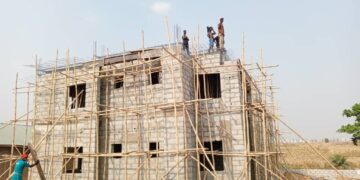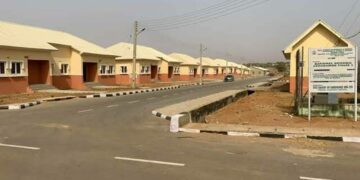How would you evaluate the current state of stability in Nigeria’s energy sector?
The current state of stability in Nigeria’s energy sector presents a mixed picture. On one hand, there’s notable effort and progress in expanding the energy infrastructure, particularly in power generation. However, the sector continues to grapple with significant challenges in transmission and distribution.
The transportation of energy resources is hindered by inadequate infrastructure, compounded by security concerns like theft and vandalism of oil and gas pipelines. Security issues are a major factor, affecting both the physical infrastructure and overall operations.
Despite these challenges, there are signs of improvement. However, the sector still requires considerable effort to achieve long-term stability and sustainability.
The 2024 OLEF presents us with an opportunity to address these issues head-on. It will gather industry experts, policymakers, and stakeholders to discuss these critical challenges and explore opportunities. The aim is to steer the sector toward innovation, collaboration, and sustainable practices, crucial for its future growth and stability.
What role do you see technology playing in improving infrastructure, transportation, and security within Nigeria’s energy sector?
I see technology as a key driver in transforming infrastructure, transportation, and security within Nigeria’s energy sector. Particularly in the realms of oil and gas, our approach to implementing this technology has been both strategic and coordinated.
In the realm of infrastructure, the integration of renewable energy sources, such as solar power is increasingly important, even within the oil and gas sector.
IoT sensors and data analytics optimise infrastructure maintenance, minimising downtime. Digital platforms enhance energy management and customer interactions, promoting efficiency. Improved pipeline monitoring enhances transportation efficiency and environmental conservation. Advanced surveillance systems bolster security against threats. Collaborative public-private partnerships facilitate effective technology deployment, while training ensures workforce readiness. A robust regulatory framework ensures consistency, and community engagement tailors solutions to sector needs.
If we continue to remain at the forefront of technological developments, we can ensure that Nigeria’s energy sector remains efficient, secure, and sustainable.
How does the divestment by IOCs impact Nigeria’s oil and gas industry, economy, and energy security?
The divestment by International Oil Companies (IOCs) in Nigeria’s oil and gas industry has multifaceted impacts on the country’s economy, energy security, and the industry as a whole. On the one hand, divestment may lead to a decrease in foreign direct investment and technological expertise, potentially impacting production levels and revenue generation. This could also affect employment opportunities and local content development within the industry.
Additionally, the divestment may pose challenges to Nigeria’s energy security, as it could reduce the involvement of IOCs in exploration and production activities, potentially leading to a decline in reserves replacement and production capacity. Furthermore, the divestment could trigger shifts in the ownership and operation of oil and gas assets, potentially impacting the competitive landscape and government revenues derived from the sector. The divestment phenomenon is not unheard of.
This happened in the North Sea region giving rise to virile small and mid-sized oil and gas companies. Some of these companies are currently competing at a considerable scale. As such, with the right policy and regulatory interventions, the situation is not a doomsday scenario for the Nigerian Oil and Gas Industry.
What challenges does Nigeria face in attracting new investment to offset the divestment by the IOCs?
Nigeria faces hurdles in attracting new investment to offset divestment by IOCs in its oil and gas industry. Addressing environmental, social and governance issues while enhancing transparency would boost confidence. Infrastructure deficiencies hinder operations and investment attractiveness. Security concerns, especially in oil-producing regions, must be addressed to reassure investors.
Promoting diversification and sustainability, including incentivising renewable energy investments, broadens appeal. Overall, concerted efforts from government, industry stakeholders, and finance sectors are needed to create an enabling environment for sustainable energy sector development and investment in Nigeria.
How does Nigeria’s existing energy infrastructure and resources compare to those of the other competing African countries?
In comparison to other competing African countries, Nigeria’s existing energy infrastructure and resources are relatively robust and diversified. Nigeria is the largest oil producer in Africa and ranks among the top natural gas reserves holders globally.
The country has a well-developed oil and gas industry, with infrastructure including pipelines, refineries, and export terminals. Additionally, Nigeria has been making efforts to diversify its energy mix, with investments in renewable energy projects such as solar and hydroelectric power. While challenges such as infrastructure maintenance, security concerns, and regulatory issues persist, Nigeria’s energy sector still presents significant opportunities for growth and investment compared to many other African countries.
How can a balanced and sustainable energy mix from Nigeria’s diverse energy sources contribute to stability in the sector?
Achieving stability in Nigeria’s energy sector requires a balanced and sustainable mix of energy sources. Diversifying beyond oil and gas to include renewables like solar and wind enhances energy security and reduces environmental impact.
This approach stimulates economic growth, especially in rural areas, by creating jobs and improving access to electricity. Investing in renewables and energy efficiency offers long-term economic benefits, reducing fuel imports and infrastructure costs while promoting a healthier environment. Overall, a diversified energy mix is crucial for stability, sustainability, and socio-economic development, laying the groundwork for a resilient and future-oriented energy sector in Nigeria.
What is your vision for the long-term impact of achieving stability in Nigeria’s energy sector?
My vision for the long-term impact of achieving stability in Nigeria’s energy sector is transformative, encompassing economic growth, social development, and environmental sustainability.
Achieving stability in Nigeria’s energy sector holds transformative potential across economic, social, and environmental dimensions.
A stable energy supply is crucial for driving economic growth, attracting foreign investment, and fostering job creation, particularly in manufacturing and technology. It has the potential to revolutionise healthcare, education, and communication, enhancing the quality of life for all citizens.
Infrastructure development could also bring significant benefits, improving connectivity and efficiency.
A stable energy sector would also mean a shift towards environmental sustainability. Integrating renewable energy sources would address environmental concerns and reduce greenhouse gas emissions. Ultimately, stability in the energy sector stands to catalyse Nigeria’s progress towards a more prosperous, equitable, and sustainable future.
Could you provide an overview of the significance of OLEF by the SPE and its impact on Nigeria’s energy industry?
The Oloibiri Lecture and Energy Forum (OLEF) series plays a crucial role in shaping Nigeria’s energy industry. Originating from the historic oil-producing town of Oloibiri, this lecture series serves as a platform to discuss critical issues and trends in the energy sector. By bringing together industry experts, policymakers, and stakeholders, the lecture highlights key challenges and opportunities facing Nigeria’s energy industry.
Through thought-provoking presentations and discussions, the lecture aims to encourage innovation, collaboration, and sustainable practices within the sector. The impact of OLEF can be seen in its contributions to policy formulation, technology development, and capacity-building initiatives in Nigeria’s energy industry. Ultimately, this annual event has been catalysing positive change and growth in one of Nigeria’s most important sectors.





